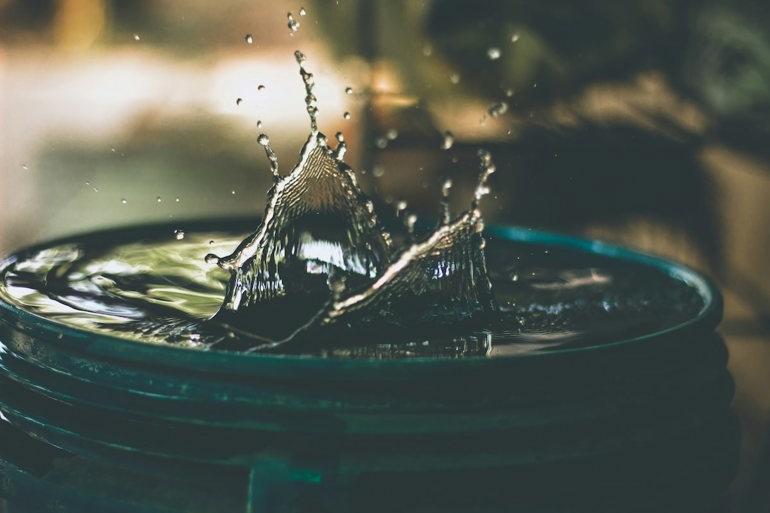


Australia’s water security has been a concern for many years, and as we look forward and consider our water future, the management and conservation of our water is paramount. Innovation is essential to secure our water future and prevent scarcity, however conservation on both a macro and micro level is critical to combat the effects of climate change.
We will be exploring how to save water in households and local communities by using recycled water, stormwater, and wastewater, the benefits of these solutions, and how they can help to create more resilient communities.
Turning off taps while brushing teeth or washing dishes.
Using a bucket instead of a hose for car washing.
Limiting shower time and using water-efficient showerheads.
Reusing cooking water for plants.
Running dishwashers and washing machines only when full.

From small changes that can be made at home to implementing infrastructure that can recycle water to allow for it to be reused, here is how to save water at home and in communities.
Councils can implement policies for sustainable water use, offer incentives for water-efficient homes and businesses, invest in community water recycling programs, and promote public education campaigns to encourage responsible water consumption.
Recycled water is wastewater that has been treated with several steps including wastewater screening, anaerobic processing, aerobic processing, chemicals, membrane filtration, UV processing, and chlorination to make it safe for reuse. Wastewater from homes and businesses is directed to local water centres where it is treated, before returning to where it was used to be used again. Recycled water can be used for various non-potable uses, such as irrigation, toilet flushing, laundry and industrial processes. Using recycled water reduces fresh drinking water usage by up to 70%, ensuring water security without being subject to water restrictions.
In Australia, recycled water is primarily used for non-drinking purposes like irrigation, toilet flushing, and industrial processes. However, some advanced treatment facilities can purify recycled water to drinking standards, though its use is currently limited to specific regions.
Stormwater is rainwater that runs off hard surfaces like roofs and roads, where it is typically carried away by drains that flow into local waterways. By capturing and treating it, it’s possible to use it for the same applications as recycled water, such as watering gardens, doing laundry and flushing toilets. A natural and sustainable water source, by utilising stormwater, it ensures no water is wasted that could be repurposed. Whilst managing stormwater can be costly for local councils and authorities, when connected to recycling infrastructure, it is possible to utilise it as part of Integrated Water Cycle Management (IWCM).
From reducing freshwater usage, to reducing the impact on the environment, and increasing water security, there are many benefits to recycling wastewater and stormwater. However, there are challenges that households and communities face that can impact water recycling.
Upfront costs can prevent smaller communities from recycling water as infrastructure needs to be created to collect, treat, and distribute recycled water, stormwater, and wastewater. Additionally, there may be public resistance or scepticism to using recycled water, stormwater, and wastewater, as some people might be concerned about safety and cleanliness. Educating the public about how to save water and the benefits of using recycled water, stormwater, and wastewater is essential to build awareness and support, particularly in small communities.
There is no single fix for water conservation, it is an ongoing effort that requires participation from all. By considering your water usage, being thoughtful with how you use water, and ensuring leaks are fixed promptly, you can save substantial volumes, and support the water future of your community and your nation. At Altogether Group, we are committed to supporting local communities to build a more sustainable future for everyone, and we do that through infrastructure and education.
If you would like to learn more about how Altogether is helping to build sustainable communities or how our utility services can benefit your community, get in touch with us today.
Water is a finite resource, and as populations grow, demand increases. Conserving water helps ensure future generations have access to clean, reliable water supplies while also protecting ecosystems and reducing the impact of droughts and climate change.
Urban development increases surfaces like roads and buildings, reducing natural water absorption and increasing runoff. This can lead to water wastage and pollution in local waterways. Sustainable urban planning, such as green infrastructure and water recycling systems, helps mitigate these effects.
At Altogether, we deliver reliable, localised essential services to over 500 communities across Australia. From world-leading recycled water systems to efficient embedded energy networks in high-rise communities, and smart grids in small communities, we're determined to do the right thing by our customers, and by the planet. As a multi-utility service provider, it’s our mission to make the world a brighter place, and we do that by offering sustainable power, water and data services.
Learn how your community can live more sustainably. Share tips and "waste hacks".
Check us out here.
